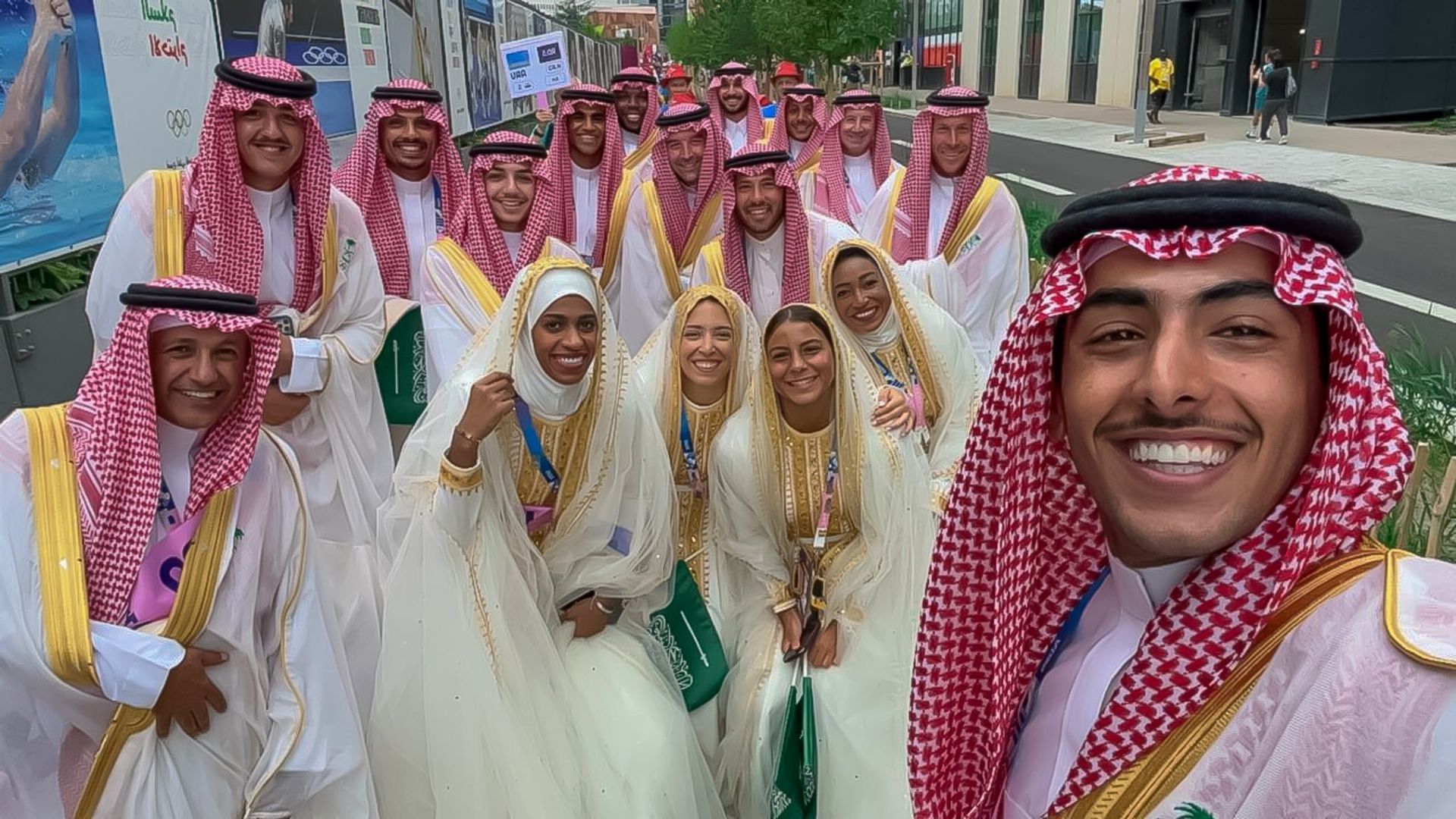Who are we? The Women of Saudi Arabia
The Generation Battle is at Hand. First Name Versus Last Name.

Who are we?
Last night as I was lying in bed at 2 AM, I thought about a lecture I heard by Dr. Daren Martin about a first name and a last name culture. Even though the topic was geared towards company culture, I felt like it had a great impact on a society's culture as well.
Before I begin, let me introduce myself. The name given to me was Maha Al-Turkistani. I grew up in the capital of Saudi Arabia, Riyadh my stepfamily hails from a region called Al-Hijaz. Maha means a wild deer or more specifically the beautiful eyes of a wild deer. In my family, I am the black sheep, the daughter who thinks it’s crazy to restrict the movements of my sisters because they, as women, are not seen as capable of handling their own affairs, choosing their own husbands and deciding what they want to do with their lives. We are often seen even far into adulthood and even after becoming mothers, as eternal children that need the protection of a man. Perhaps many of us do, but many of us do not. After all, if you treat someone as a child, will they not naturally remain a child? My last name is Al-Turkistani, meaning our family came originally from a land called Turkistan many, many years ago before settling in the mountains of Mecca.
But how do these two things relate to society in Saudi Arabia? They relate because we fight a daily battle between our given names (Who we are) and our last names (Our tribes and where we come from). This battle is complex and has many of us feeling trapped beneath the boots of the past. Our families' older generations grew up in a different world where times were simpler and they still attempt to hold on to that past with both hands. Holding on to a world that cannot sustain us into the future.
At the age of six, I was taught that the only career aspirations I should have are those fields that would put me only in female company, such as a teacher in an all-girls school. But most importantly, I was taught that my first aspiration should be to marry. “One day you will marry” my Hijazi grandma would say over and over. When I would ask to cut my hair the response was “One day you will marry, and if your husband wants long hair, you have it, and if he wants it short, then you can cut it”. As a result, the young girl I was looked forward eagerly to marriage since it was then that I would be allowed to do everything I had asked to do in my parent's house. This was how it was seen, but what if your husband decides differently? What if he is more strict than your parents? My grandma also used to say that marriage is like a watermelon. You never know what you have until you cut it open. Are we all then stuck playing marriage Russian roulette?
Despite all the outward changes in the kingdom that allow us to travel without our guardians, our families still prevent us from doing so out of principle and sadly, it is harder than one might think to disobey them. We face hard choices such as if I decide to disobey them will I lose a part of me? My last name? My tribe, my land, my world and everything I love about my world only to live half a life as only Maha? Or do I stay and obey my family and live a life of quiet desperation longing for more? Wasting my days in front of a TV, online or having visit after visit from female neighbors, relatives and taking care of my children. How do we know how much of us is in either of these names? When the truth is all of us is the combination of the two.
What if our desire is to one day become an artist and travel around the world and not to get married? Such things, despite the arrival of women being able to study a lot more subjects both in the country and abroad, still hold with it a stigma in society. What if we never wanted to have children? When it had been the soul goal and aspiration of all the generations of women that came before us. Does that make us crazy? It would to my grandma, all of my aunts and uncles.
It’s hard to explain that women are now allowed to attend mixed concerts in Saudi but we still need to beg our fathers and husbands to allow us to go and even when they do agree they either come along or assign us a chaperone from among our male relatives. Always for our protection of course. But why can’t your modern-day Saudi woman be seen as capable of taking care of herself?
How can we find out who we are as a generation when custom and ideology force us to refer to the previous generation for guidance and, most importantly, permission? Sadly choosing one or the other: to embrace our first name and sore or our last name and submit comes with it hard consequences. Being disowned by one's family for choosing to sore brings with it great sadness. We are a tribal and communal culture and we all love the family gatherings, our cousins, our food, our friends and our customs but we are also starving for flight.
Some of us are permitted to travel, dress as we like abroad and study or work in fields we please but unlike when an American meets another American from their hometown in a foreign country where they embrace and share common stories, when we meet another Saudi we often shy away and avoid places where we might run into someone who knows where we come from. For fear that they will go home and gossip about how the daughter of so and so was seen uncovered, working alongside men and shaming her family. Ooops bye-bye marriage prospects. When such an incident occurs suddenly, we find ourselves back at home, married off, locked up, or worse. Freedom still very much feels like an illusion, something to play with until we are married so we can further untie our family through blood to another tribe.
While the west looks fondly on these reforms they forget that the people remain unchanged. My grandmother still calls her Ethiopian maid by the Arabic version of the N word. Our uncles still think the working class nationalities are beneath them (Indonesian, Filipino, Indian, Pakistani, and so on). When a cousin finds a picture of one of us online uncovered our fathers immediately receive a call about the scandalous behavior of their daughter. If my grandmother who often sends my cousins on google spying missions finds something and feels like the punishment our father dished out wasn't enough then she calls for a meeting of her sons and swears she will pray against them. This is followed by begging, and they all beg at her feet for forgiveness. Since at the feet of your mother lies your entry into heaven. And raising a pious and upstanding respectable daughter can accomplish the same. But what was considered pious, upstanding and respectable years ago, does it really hold up today?
Are we not pious, upstanding and respectable whether we cover or not, pray or not, mingle with men or not, choose to pursue our dreams or not?
Like so many of you, I am plagued by these kinds of questions daily. The biggest one is who am I? Am I Maha the free-thinking liberal Hijazi woman who thinks the past generations need to love us regardless of our choices or am I the daughter of the house of Al-Turkistni who obeys her elders and does her best to respect the old ways? Can we find both together living side by side harmoniously one day? I don’t know, but my sincere hope is that we will.
Signed,
Elise Evans


